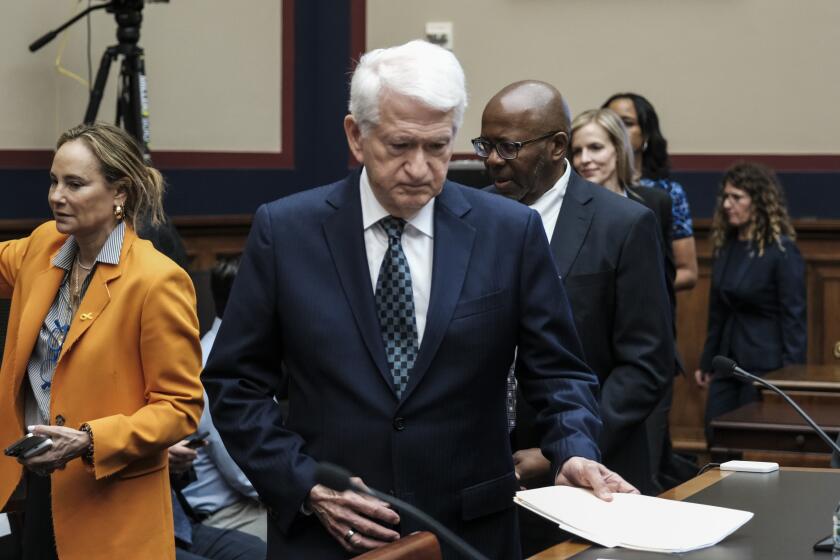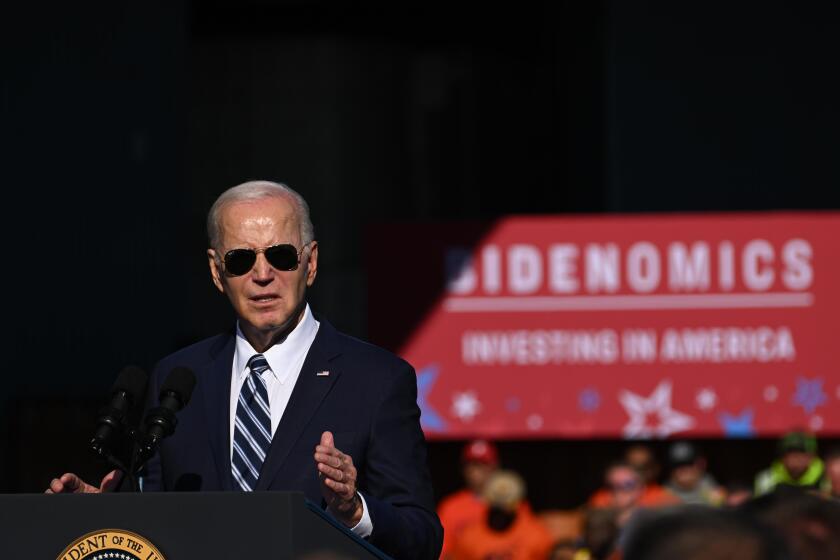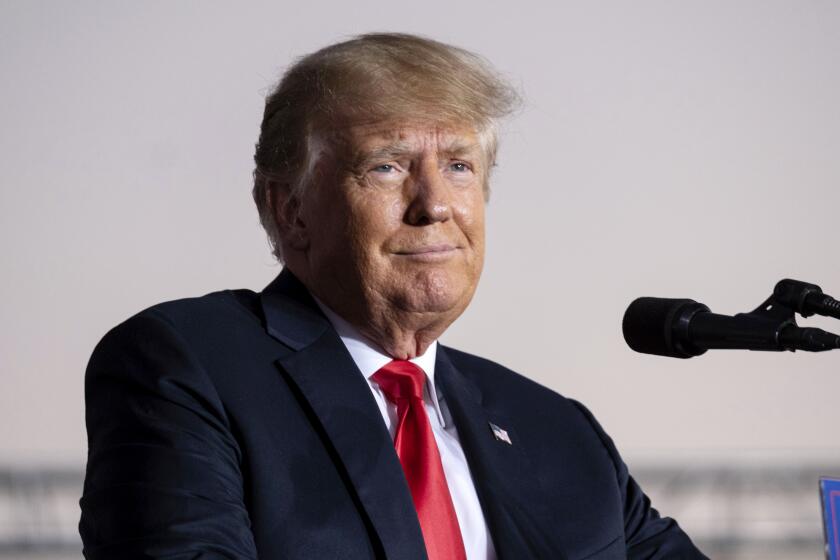Go Slow on Expanding NATO
With barely a whisper of dissent, the Foreign Relations Committee has sent to the Senate floor a resolution to bring Poland, Hungary and the Czech Republic into NATO next year. A vote on the measure--technically, a revision of the 1949 NATO treaty--could come within a few weeks. But more than a dozen senators have had the good sense to ask for a delay until after June 1 so that important clarifications can be sought. The expansion of NATO is the most significant foreign policy issue to arise since the end of the Cold War. The Senate by all means should take a few more months to better understand its implications.
The Clinton administration and other supporters of enlargement have recited a list of generalities about supposed benefits. What’s needed instead are specific answers to basic questions about just what NATO’s growth will mean, involve and cost. President Clinton contends that expanding the 16-nation alliance “will make NATO stronger, Europe more stable and America more secure.” But the reverse can also be argued for each of these claims.
For instance, because NATO acts by consensus, a larger alliance could make it harder to agree on responses to threats to peace. Rather than promoting stability, an enlarged NATO could fuel tensions by deepening the political divisions and national jealousies among those who are in the alliance and those who are not. And just how would taking on major new military and financial responsibilities for Europe’s defense by itself enhance U.S. security?
The most remarkable gap in the case for a bigger NATO is the absence of a clear sense of what its mission should be. Jesse Helms (R-N.C.), chairman of the Foreign Relations Committee, says he looks to a bigger NATO to help contain Russia. The administration, denying that the new NATO has anything to do with fears of a revived Russian military threat, cheerily proclaims that it’s all about strengthening democracy in Europe. Others, like Sen. Joseph Biden (D-Del.), see a bigger NATO as a vehicle for peacekeeping. There was never any doubt about why NATO was formed: to deter Soviet aggression. But when it comes to the new NATO, no one is sure what it is supposed to do.
Expanding NATO won’t be cost-free. The weapons and communications systems of the three applicant countries would have to be brought into conformity with NATO equipment. The administration has told Congress it expects other NATO countries to pay 94% of the additional costs. What that expectation rests on is a mystery. Even the richer European NATO members, weighed down by high unemployment and burgeoning social welfare expenses, have indicated they won’t pay up. Is Congress ready to commit the United States to a plan whose true costs--as distinct from the administration’s ridiculously low figure of $1.2 billion--no one can foresee but which some estimates put as high as $120 billion?
Finally, how far should enlargement extend? Five more states--Estonia, Latvia, Lithuania, Slovenia and Romania--have been invited to apply for membership in April 1999. Three neutrals--Finland, Austria and Sweden--are also thinking about applying. Russia has emphatically warned against opening up NATO to any of the former Soviet republics, especially the three Baltic states; it sees such expansion as a threat to its security.
But if the point of a bigger NATO is, as Clinton maintains, to spread the blessings of stability and democracy across Europe, then surely universal membership ought to be considered, including membership for Russia, where greater stability and a more firmly anchored democracy are clearly in the security interests of the West.
That this won’t happen is the only safe prediction concerning NATO’s future. About NATO’s mission, the costs of expansion and what new commitments the United States will assume, little can be said with confidence. That’s why some troubled senators are seeking fuller answers before voting for enlargement. What they want to know is what the nation must know before this fateful step is taken.
More to Read
Start your day right
Sign up for Essential California for news, features and recommendations from the L.A. Times and beyond in your inbox six days a week.
You may occasionally receive promotional content from the Los Angeles Times.






